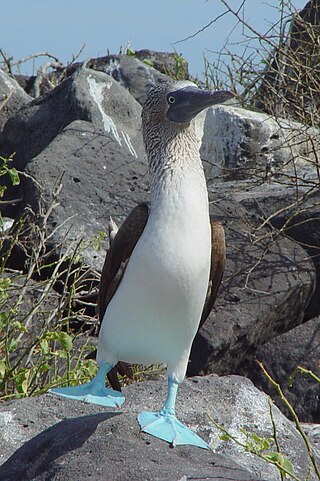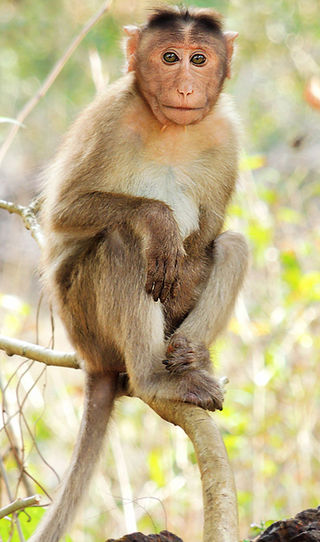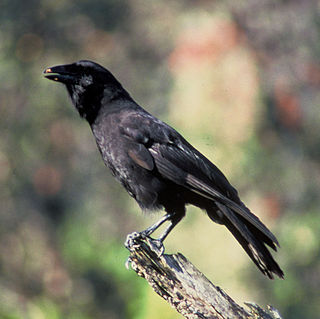
Penguins are a group of aquatic flightless birds from the family Spheniscidae of the order Sphenisciformes. They live almost exclusively in the Southern Hemisphere: only one species, the Galápagos penguin, is found north of the Equator. Highly adapted for life in the ocean water, penguins have countershaded dark and white plumage and flippers for swimming. Most penguins feed on krill, fish, squid and other forms of sea life which they catch with their bills and swallow whole while swimming. A penguin has a spiny tongue and powerful jaws to grip slippery prey.

Mackerel is a common name applied to a number of different species of pelagic fish, mostly from the family Scombridae. They are found in both temperate and tropical seas, mostly living along the coast or offshore in the oceanic environment.

Herring are various species of forage fish, belonging to the order Clupeiformes.

The International Union for Conservation of Nature (IUCN) Red List of Threatened Species, also known as the IUCN Red List or Red Data Book, founded in 1964, is an inventory of the global conservation status and extinction risk of biological species. A series of Regional Red Lists, which assess the risk of extinction to species within a political management unit, are also produced by countries and organizations.

A booby is a seabird in the genus Sula, part of the family Sulidae. Boobies are closely related to the gannets (Morus), which were formerly included in Sula.

Sardine and pilchard are common names for various species of small, oily forage fish in the herring suborder Clupeoidei. The term 'sardine' was first used in English during the early 15th century; a somewhat dubious etymology says it comes from the Italian island of Sardinia, around which sardines were once supposedly abundant.

The macaques constitute a genus (Macaca) of gregarious Old World monkeys of the subfamily Cercopithecinae. The 23 species of macaques inhabit ranges throughout Asia, North Africa, and Europe. Macaques are principally frugivorous, although their diet also includes seeds, leaves, flowers, and tree bark. Some species such as the long-tailed macaque will supplement their diets with small amounts of meat from shellfish, insects, and small mammals. On average, a southern pig-tailed macaque in Malaysia eats about 70 large rats each year. All macaque social groups are arranged around dominant matriarchs.
A near-threatened species is a species which has been categorized as "Near Threatened" (NT) by the International Union for Conservation of Nature (IUCN) as that may be vulnerable to endangerment in the near future, but it does not currently qualify for the threatened status.

An IUCN Red List critically endangered species is one that has been categorized by the International Union for Conservation of Nature as facing an extremely high risk of extinction in the wild. As of December 2023, of the 157,190 species currently on the IUCN Red List, 9,760 of those are listed as critically endangered, with 1,302 being possibly extinct and 67 possibly extinct in the wild.

A species that is extinct in the wild (EW) is one that has been categorized by the International Union for Conservation of Nature as only consisting of living members kept in captivity or as a naturalized population outside its historic range. Classification requires exhaustive surveys conducted within the species' known habitat with consideration given to seasonality, time of day, and life cycle. Once a species is classified as EW, the only way for it to be downgraded is through reintroduction.

Sclater's shrew is a species of mammal in the family Soricidae. It is endemic to Mexico.

Liburnascincus is a genus of skinks. All are endemic to Australia.

Eugongylinae is a subfamily of skinks within the family Scincidae. The genera in this subfamily were previously found to belong the Eugongylus group in the large subfamily Lygosominae.
Liburnascincus artemis is an endemic species that inhabits Queensland, Australia.
Liburnascincus mundivensis, the outcrop rainbow-skink, is an endemic lizard species inhabiting Queensland, Australia. It is named after the type locality whose name ("Muldiva") is a corruption of the aboriginal name for the creek Mundiva.












